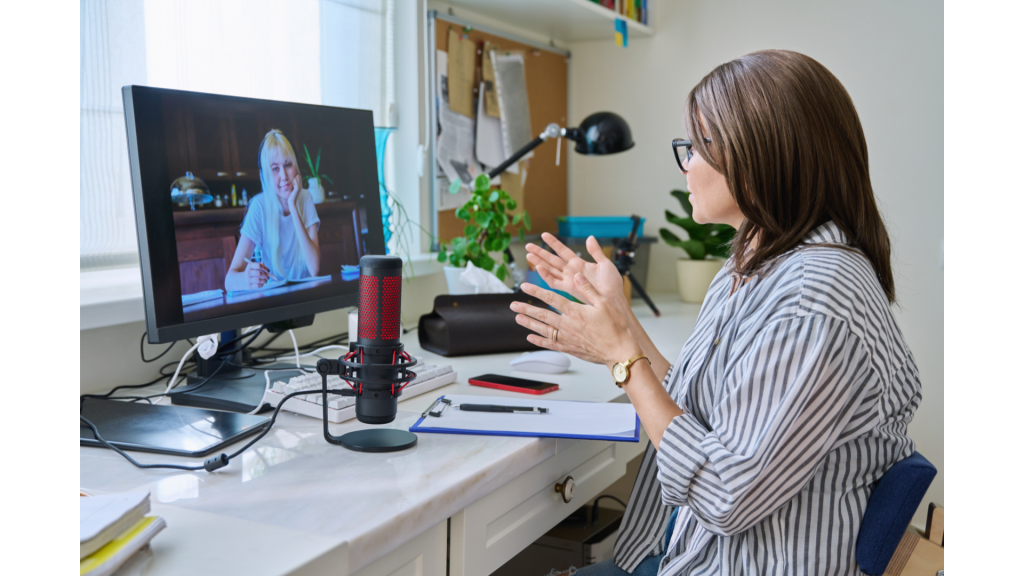Contamination OCD is a type of Obsessive Compulsive Disorder, where you are afraid that one thing may not be clean and germ-free and may contaminate something else, which ultimately could cause harm to you, or other people, and you will be responsible.
I mentioned the ’cause harm’ bit right at the start of this article. As for most people, it is the fear of causing harm that makes you clean or wash. If you have already undertaken some work on your OCD, you should have come across this before in terms of ‘your belief system’.
OCD Self-help

Dr Ryan’s online self-help course for OCD
Contamination or germ OCD has obsessions and compulsions, and it is these obsessions and compulsions cause the problem for you.
If you get the thought into your head that something could be dirty or contaminated, this is called an obsession (the thoughts in your head), and you do something to help you cope; this is the compulsion.
The compulsion can serve two purposes
- to get rid of the germs so that you do not cause harm to yourself or other people (by making them ill or worse), or
- to disarm and take the fear out of the thought that ‘something bad might happen.’
I shall give you three examples, the first one is straightforward, and the second will be more like something you can relate to if you have contamination OCD and are concerned about making yourself or someone ill. The third will relate to the worry that something bad might happen.
Contamination OCD examples
First example: Simplified
If you think you have touched something dirty, this can make you anxious and worried that something bad should happen, or you can make someone ill, so you wash your hands.
Second example: You will make yourself or someone else ill (or worse.)
You are buttering bread, and the tip of the knife hit the edge of the butter dish, and you are not sure if the butter dish is ‘clean.’ You might obsess about this in your head.
- How did you lift the dish from the cupboard?
- Did it touch anything else?
You might start to doubt the cleanliness of your work surface or plate, which you were okay about when you started to butter the bread. You feel very anxious and may or may not have the thought of how this could make you or someone else ill; you might feel the anxiety. You carry out your own compulsions to make sure you do not spread germs and make people ill. These could be
- dumping the bread
- washing the knife, plate, work surface, dumping the butter, washing the butter dish, washing your hands. You will have your own way of doing this.
Third example: Something bad might happen
A friend comes over and sets her bag on your sofa. You get anxious and obsess ( I keep using obsess as I want you to get very comfortable with the word obsession, as even this can help to distance you from what you are feeling when you start to really see it in terms of obsessions and compulsions)
- Where has that bag been?
- Does she set it on the ground when she is outside?
- There will be germs on the bag
- If she feels it’s okay to set it down like that, how do I know how clean she is, what has she touched in my home?
You feel very anxious and might have a non-specific ‘something bad is going to happen feeling, so to disarm this feeling, you clean, and again you will have your own way of cleaning, which I am going to talk about soon, but first I shall list some common contamination worries.
Contamination worries (obsessions)
- Germs and dirt
- Household products such as cleaning products, sprays, bleach – sometimes people do not expect this to be a worry, but if you have this, you will know that you can be afraid of, for example, toxins in the products.
- Fluids from the body, such as blood, urine, faeces and saliva
- Asbestos, toxic substances, waste products
- Animals and insects that you think might carry germs or disease.
This is, of course, a concise list, but your worries can be related to anything that you consider could be ‘dirty’ or contaminated or could spread germs and help you cope with this, you carry out compulsions.
Compulsions relating to contamination OCD
This is not going to be an all-inclusive list, but I shall give enough examples of contamination OCD compulsions that you should be able to relate to, at least some of them.
Hand washing;
You will have your own way of doing this. You could wash or scrub each finger, wash your wrists, or up to your elbows. You might have your own soap.
Showering, bathing
Again you have your own way to do this. You might need to clean the bath or shower before washing; you might clean your products or have your own ‘safe’ products. You might have your own towel or bathmat. You might have to use several different towels.
Cleaning your home
You might use cloths that you can dump once you have finished cleaning
Cleaning a kitchen surface may not just be a quick wipe with antibacterial spray; you could have a brush to scrub between tiles and get into corners, one surface may be washed, then disinfected, bleached, rinsed, and then repeat; and this could include changing cloths with each new product used.
Washing clothes
Some items may not be okay to wash with others, for example, underwear with towels, family members towels with your towels, indoor clothes with outdoor clothes.
In addition to the obsessions and compulsions, there is usually a lot of avoidance with contamination OCD.
Avoidance with contamination ocd
In order to avoid something bad from happening or to protect yourself (and your family) from the spread of germs, there are probably a lot of things that you avoid, such as
Using toilets
You might limit your fluid intake to avoid needing to go to the loo when you are out.
Using unfamiliar toilets or toilets that are not considered ‘safe.’ You probably avoid sitting on the seat if you have to use them.
You might have antibacterial wipes and gel in your bag to help you with using a loo that is not your own.
Public transport
You might avoid using public transport as there are too many germs, too many unsafe things you would have to touch, too many people who may brush up against you or cough and spread germs.
Things that you can’t touch when out and about
The pedestrian crossing button to help you cross the road, as too many people touch this every day and the risk of contamination is too great.
Door handles, anything really that will be touched regularly by the public. You will find your own way around this.
Your own way of doing things to help with contamination OCD.
To keep yourself safe, you will have found your own way to do things, which might include some of the following.
Only using certain plates, cutlery, cups and mugs at home. This might be kept in your own cupboard, which you can feel relatively safe about.
When you bring things into your home from outside, such as your shopping, you might clean it or wrap it up in something before you put it away.
I think what I want you to get from this article is that living with contamination OCD can feel like everything ‘out there’ is sticky. There is a chance that you can come into contact with this, and it sticks to you and can ultimately result in causing harm to you or the people that you care about, and it will be your fault.
I want to talk about that now before I finish this piece; how you feel such overwhelming responsibility.
Feeling responsible for things that have not yet happened
The driving force behind contamination OCD is a fear that you can make yourself or people you care about ill or harm them somehow, and it will be your fault.
When I say ill, I am not talking about a common cold. The things you could fear would be serious illnesses or even death, and this type of OCD thrives on this, making it hard to give up your compulsions, just in case they really are keeping you safe.
When I was writing this article, something really struck me. I went into the kitchen to get a snack and used my kitchen bin, washed my hands and was just about to come back to my computer to finish writing this when I realised I just did something simple that I took for granted, that could be incredibly problematic for you.
I went back and made a quick video of what I did. The sound quality is not great as I just used my phone, but I wanted to make a quick video, and you can see it below.
RETRAIN YOUR BRAIN®
You don’t need to wait to see me, all my materials are available to use now, in my online self help course
Find out more
Why I put this up is maybe more to benefit those of you who do not have contamination OCD and find it hard to understand. Keep in mind what I said above that it can feel like everything is ‘sticky’ and can cause harm. I actually went into my kitchen to make cheese and toast, and the video is just of the bin.
There would be so many things that a person with OCD could find difficult about the bin alone. I was aware of how many things I touched just making cheese and toast, and next time you are doing something, keep in mind my notion of things being sticky – that they could potentially transfer germs and cause harm.
For my cheese and toast, which only took minutes, I touched
- bread bin
- bread,
- cupboard
- plates
- drawer
- cutlery, and bear in mind this could also be touching other cutlery in addition to what I needed
- fridge
- cheese
- grill
- tea towel, and I was acutely aware of how the tea towel touched my clothes
I could go on, but I won’t think of that in terms of stickiness and the spread of germs, and it will help you understand and compassion if you live with someone who has contamination OCD.
Treatment for Contamination OCD
If you are reading this and can relate to what I am saying, there are effective treatments available which include, Exposure Response Prevention (ERP), Cognitive Behavioural Therapy (CBT) and Acceptance and Commitment Therapy (ACT). The recommended treatment is CBT with Exposure Response Prevention.
If you would like my help, I no longer see clients as I am devoting my time to take courses. I have a self-help course for OCD that you are more than welcome to look at
